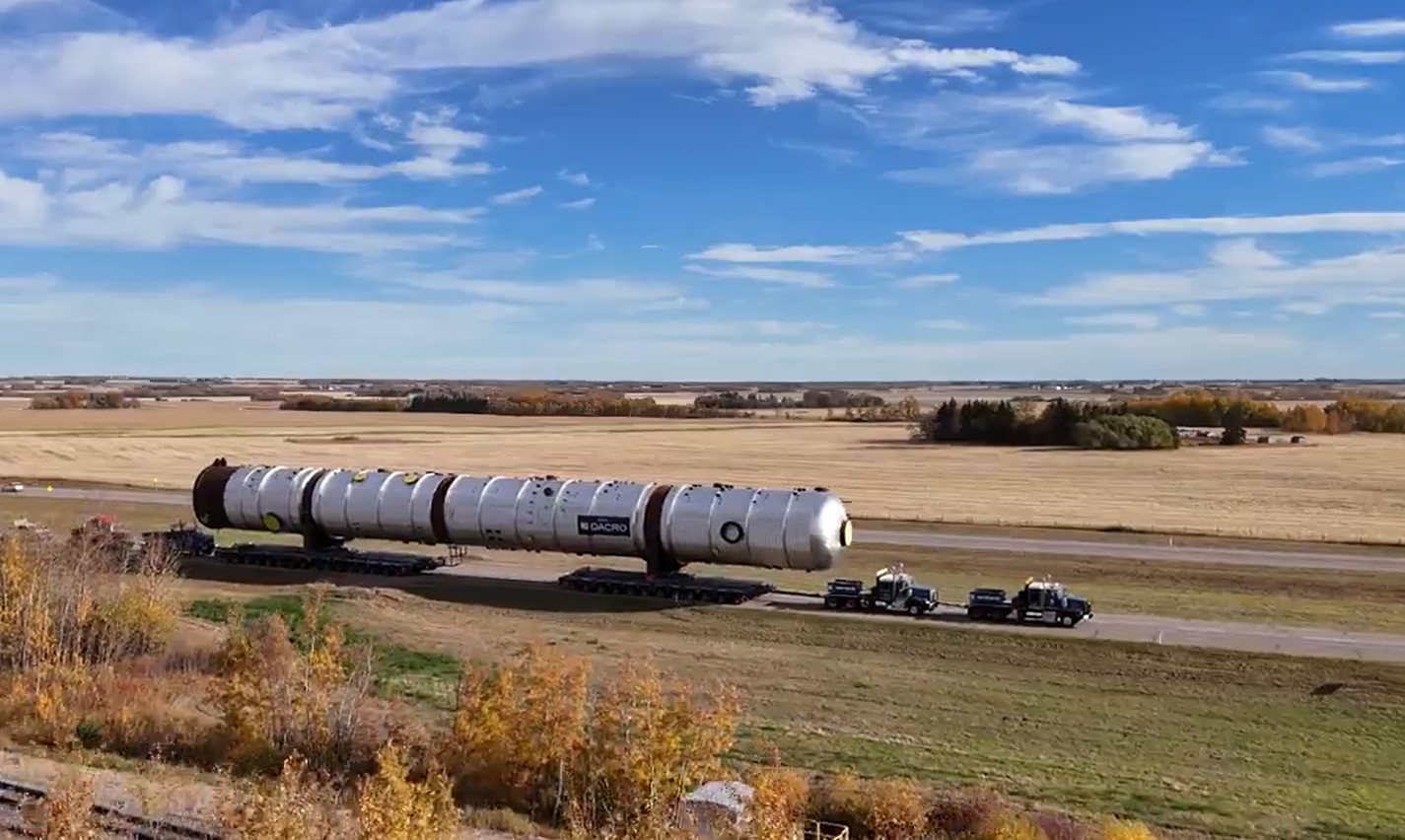Industrial site targets major carbon reductions

The new Polaris CCS (Carbon Capture and Storage) Project, launched by Shell in Alberta, represents a significant advancement for the region’s industry. It directly contributes to the capture of more than 589,670 tonnes (650,000 tons) of CO2 produced annually at the Shell Energy and Chemical Park in Scotford, near Edmonton. This capture and storage capacity addresses approximately 40 per cent of the refinery’s direct CO2 emissions and 22 per cent of the chemical complex’s emissions.
Sarens has been developing this project on heavy haul and lift operations since October 2024. Thorough planning was necessary for de-energizing transmission lines, removing railway arms, and evaluating bridge capacities to ensure the safe passage of the equipment.
In its first phase, it will focus on capturing CO2 from specific industrial processes, such as the refinery’s hydrogen plants, which will produce blue hydrogen for use in the refining process. The captured CO2 will be transported via a pipeline to the Atlas Carbon Storage Hub, where it will be permanently stored in the Basal Cambrian Sands formation.
It is estimated that, over its lifetime, this project will be able to store more than 272 million tonnes (300 million tons) of CO2.
The project is expected to be operational by the end of 2028.


